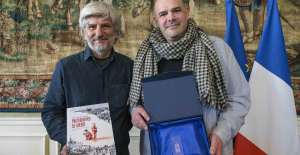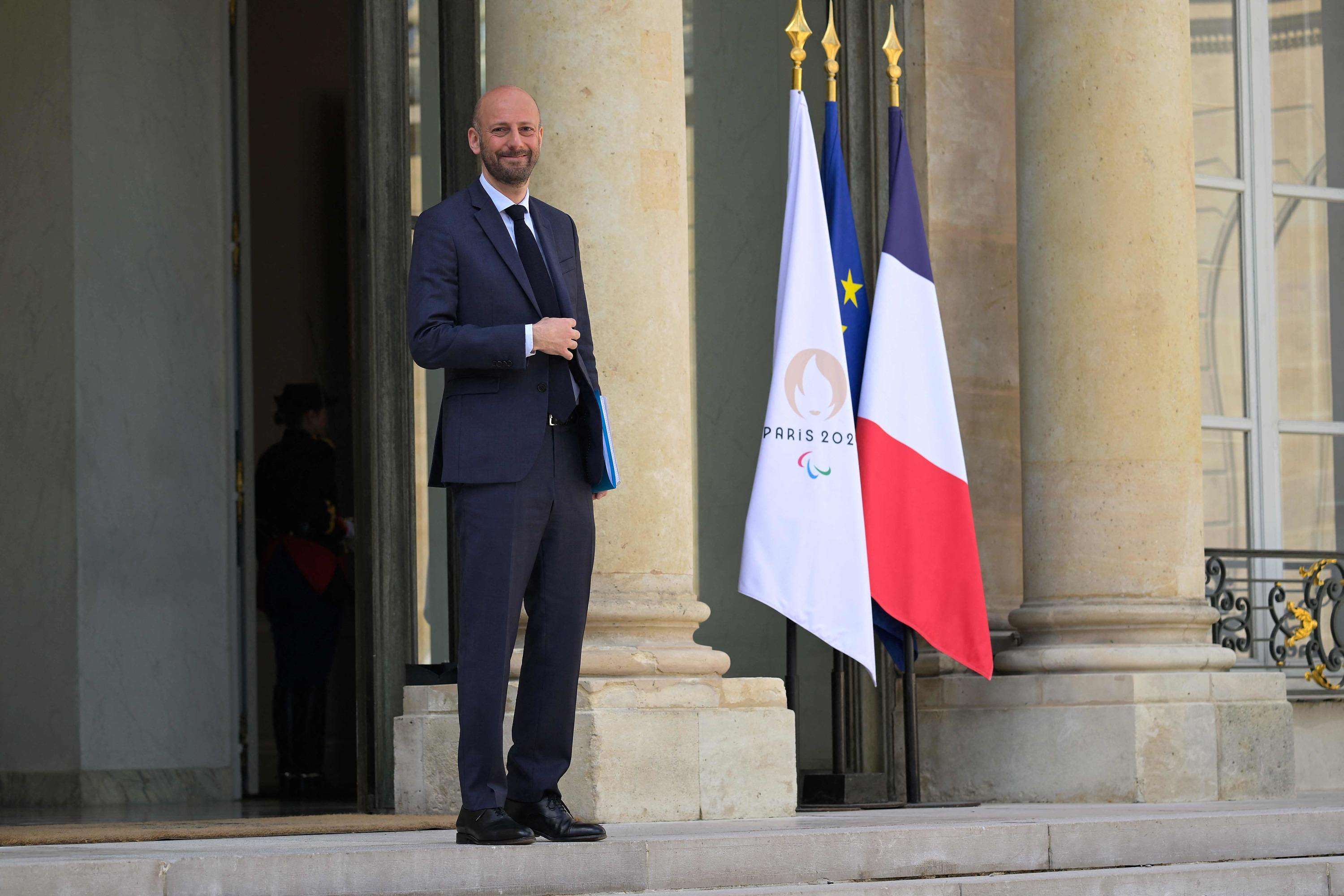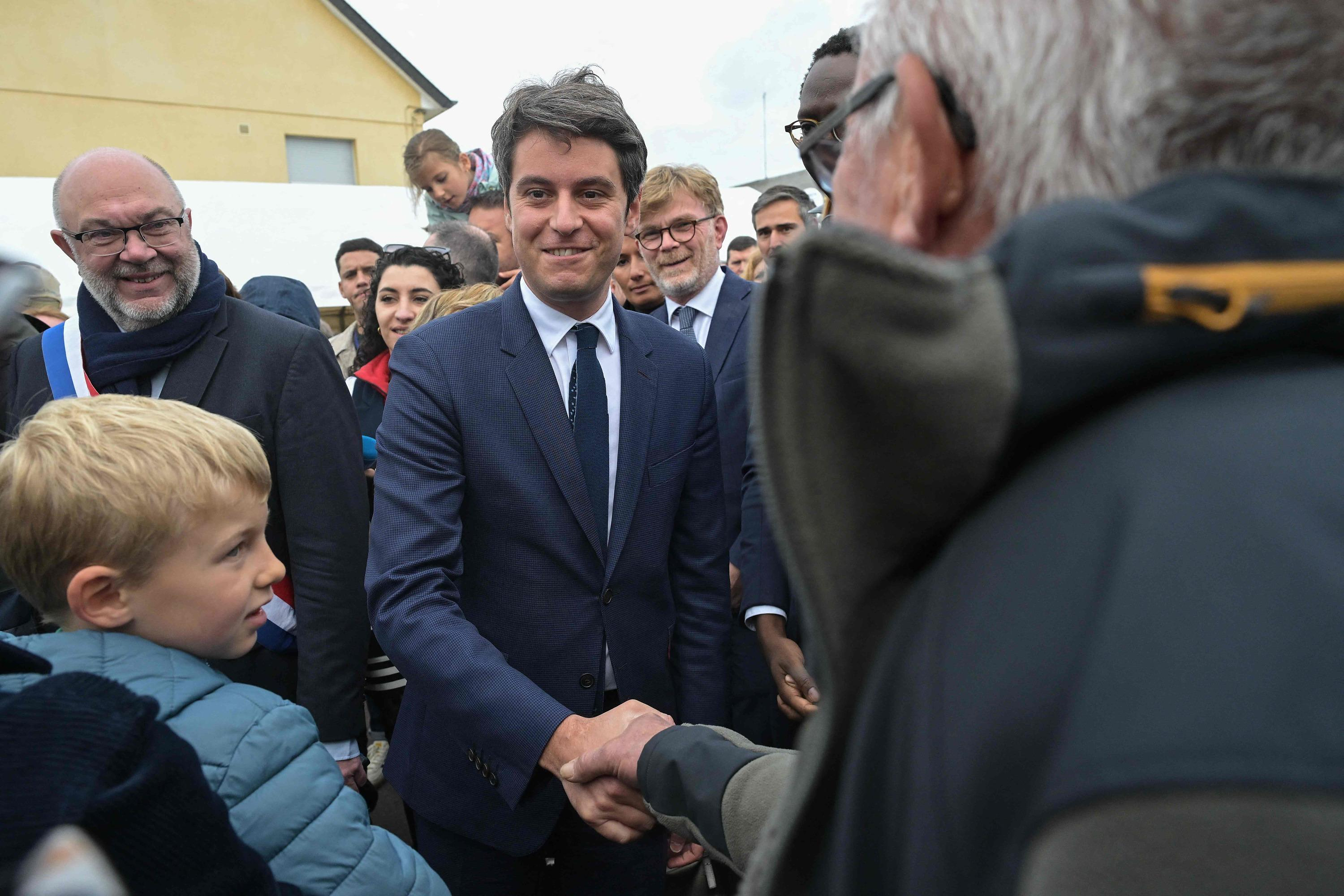The city of Grigny (Essonne), which asked the local Coca-Cola factory to stop drawing water from the groundwater to produce its drinks, said Wednesday that it had reached an agreement with the company. “An agreement in principle” so that the Coca-Cola factory in Grigny “stops pumping into the groundwater” was found between the municipality and the multinational and “we are in the process of creating the technical conditions” for a connection from the plant to the city's public water distribution network, said the mayor (PCF), Philippe Rio.
The city councilor told the newspaper Le Parisien on Tuesday that he had "recently" asked Coca-Cola to stop drawing from the groundwater. For its part, Coca-Cola Europacific Partners (CCEP), the bottler in Western Europe of the American soft drink giant, indicated in a press release that “at this stage the agreement with the municipality [was] under discussion”. The company says it is working “with the municipality on terms to buy city water for part” of its drinks.
Established since 1986 in Grigny, 22 km south of Paris, the factory employs 266 people and produces bottles of Sprite, Coca-Cola and Fanta. For this, it would draw nearly 780,000 m3 of water per year from the groundwater, according to a source familiar with the matter. This model is today "has been", according to Philippe Rio, for whom "we must protect the resource [in water] because we do not know what tomorrow will bring".
Coca-Cola was the only one to draw from this water table, Grigny being supplied with water by the Seine, also explains the mayor. "There was no conflict of use on the water table", he underlines, adding that the city does not have a "problem of supply" in water. "We are even overcapacity" and "we can therefore provide them with water, they do not have to touch a natural environment, which must be preserved", insists Philippe Rio. “Perhaps in 20 years, we will have done well not to touch it,” he pleads.
For its part, CCEP assures in its press release that it has “invested” on the Grigny site “in order to limit its water consumption as much as possible, investments which, according to the company, have allowed “savings of more than 50,000 m3 per year” . “Our drilling is subject to prefectural authorizations which are revised and issued regularly, and which can evolve according to the situation of water stress in the territory, by decision of the State services”, also underlined CCEP.
Water withdrawals "change regularly according to the activity without ever exceeding, at any time, the limit of 1.2 million m³ authorized", indicated the prefecture of Essonne. These samples were authorized "after study of the hydrogeological impacts", she added. According to this same source, the company has "the right to freely dispose of spring water and groundwater lying below" the land it owns, and "like all water abstractors, a fee is due to the Seine-Normandy Water Agency”. The French subsidiary of Coca-Cola employs in France some "2,500 employees", in five factories, according to its website.

 B:SM will break its investment record this year with 62 million euros
B:SM will break its investment record this year with 62 million euros War in Ukraine: when kyiv attacks Russia with inflatable balloons loaded with explosives
War in Ukraine: when kyiv attacks Russia with inflatable balloons loaded with explosives United States: divided on the question of presidential immunity, the Supreme Court offers respite to Trump
United States: divided on the question of presidential immunity, the Supreme Court offers respite to Trump Maurizio Molinari: “the Scurati affair, a European injury”
Maurizio Molinari: “the Scurati affair, a European injury” Beware of the three main sources of poisoning in children
Beware of the three main sources of poisoning in children First three cases of “native” cholera confirmed in Mayotte
First three cases of “native” cholera confirmed in Mayotte Meningitis: compulsory vaccination for babies will be extended in 2025
Meningitis: compulsory vaccination for babies will be extended in 2025 Spain is the country in the European Union with the most overqualified workers for their jobs
Spain is the country in the European Union with the most overqualified workers for their jobs In the United States, a Boeing 767 loses its emergency slide shortly after takeoff
In the United States, a Boeing 767 loses its emergency slide shortly after takeoff The A13 motorway will not reopen on May 1
The A13 motorway will not reopen on May 1 More than 1,500 items for less than 1 euro: the Dutch discounter Action opens a third store in Paris
More than 1,500 items for less than 1 euro: the Dutch discounter Action opens a third store in Paris 100 million euros in loans, water storage, Ecophyto plan… New measures from the executive towards farmers
100 million euros in loans, water storage, Ecophyto plan… New measures from the executive towards farmers New York justice returns 30 works of art looted from Cambodia and Indonesia
New York justice returns 30 works of art looted from Cambodia and Indonesia Les Galons de la BD dedicates War Photographers, a virtuoso album on the Spanish War
Les Galons de la BD dedicates War Photographers, a virtuoso album on the Spanish War Theater: Kevin, or the example of an academic failure
Theater: Kevin, or the example of an academic failure The eye of the INA: Jean Carmet, the thirst for life of a great actor
The eye of the INA: Jean Carmet, the thirst for life of a great actor Skoda Kodiaq 2024: a 'beast' plug-in hybrid SUV
Skoda Kodiaq 2024: a 'beast' plug-in hybrid SUV Tesla launches a new Model Y with 600 km of autonomy at a "more accessible price"
Tesla launches a new Model Y with 600 km of autonomy at a "more accessible price" The 10 best-selling cars in March 2024 in Spain: sales fall due to Easter
The 10 best-selling cars in March 2024 in Spain: sales fall due to Easter A private jet company buys more than 100 flying cars
A private jet company buys more than 100 flying cars This is how housing prices have changed in Spain in the last decade
This is how housing prices have changed in Spain in the last decade The home mortgage firm drops 10% in January and interest soars to 3.46%
The home mortgage firm drops 10% in January and interest soars to 3.46% The jewel of the Rocío de Nagüeles urbanization: a dream villa in Marbella
The jewel of the Rocío de Nagüeles urbanization: a dream villa in Marbella Rental prices grow by 7.3% in February: where does it go up and where does it go down?
Rental prices grow by 7.3% in February: where does it go up and where does it go down? Even on a mission for NATO, the Charles-de-Gaulle remains under French control, Lecornu responds to Mélenchon
Even on a mission for NATO, the Charles-de-Gaulle remains under French control, Lecornu responds to Mélenchon “Deadly Europe”, “economic decline”, immigration… What to remember from Emmanuel Macron’s speech at the Sorbonne
“Deadly Europe”, “economic decline”, immigration… What to remember from Emmanuel Macron’s speech at the Sorbonne Sale of Biogaran: The Republicans write to Emmanuel Macron
Sale of Biogaran: The Republicans write to Emmanuel Macron Europeans: “All those who claim that we don’t need Europe are liars”, criticizes Bayrou
Europeans: “All those who claim that we don’t need Europe are liars”, criticizes Bayrou These French cities that will boycott the World Cup in Qatar
These French cities that will boycott the World Cup in Qatar Toulouse-Racing 92: The liberating entry of Antoine Dupont, the Ile-de-France shipwreck... The tops and the flops
Toulouse-Racing 92: The liberating entry of Antoine Dupont, the Ile-de-France shipwreck... The tops and the flops Premier League: Sheffield United relegated after heavy defeat against Newcastle
Premier League: Sheffield United relegated after heavy defeat against Newcastle Judo: Audrey Tcheuméo consoles herself with a 5th European coronation
Judo: Audrey Tcheuméo consoles herself with a 5th European coronation Tennis: in Madrid, Rafael Nadal wins his revenge against Alex De Minaur
Tennis: in Madrid, Rafael Nadal wins his revenge against Alex De Minaur


















